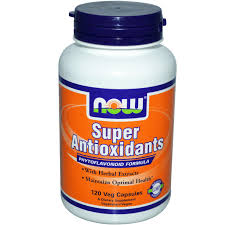Antioxidant use may promote spread of cancer

Metastasis, the process by which cancer cells disseminate from their primary site to other parts of the body, leads to the death of most cancer patients. New research suggests that when antioxidants were administered to lab mice, their cancer spread more quickly than in mice that did not get antioxidants. Source: Science Daily
A team of scientists at the Children’s Research Institute at UT Southwestern (CRI) has made a discovery that suggests cancer cells benefit more from antioxidants than normal cells, raising concerns about the use of dietary antioxidants by patients with cancer. The studies were conducted in specialized mice that had been transplanted with melanoma cells from patients. Prior studies had shown that the metastasis of human melanoma cells in these mice is predictive of their metastasis in patients.
Metastasis, the process by which cancer cells disseminate from their primary site to other parts of the body, leads to the death of most cancer patients. The CRI team found that when antioxidants were administered to the mice, the cancer spread more quickly than in mice that did not get antioxidants. The study was published online today in Nature.
It has long been known that the spread of cancer cells from one part of the body to another is an inefficient process in which the vast majority of cancer cells that enter the blood fail to survive.
“We discovered that metastasizing melanoma cells experience very high levels of oxidative stress, which leads to the death of most metastasizing cells,” said Dr. Sean Morrison, CRI Director and Mary McDermott Cook Chair in Pediatric Genetics at UT Southwestern Medical Center. “Administration of antioxidants to the mice allowed more of the metastasizing melanoma cells to survive, increasing metastatic disease burden.”
“The idea that antioxidants are good for you has been so strong that there have been clinical trials done in which cancer patients were administered antioxidants,” added Dr. Morrison, who is also a CPRIT Scholar in Cancer Research and a Howard Hughes Medical Institute Investigator. “Some of those trials had to be stopped because the patients getting the antioxidants were dying faster. Our data suggest the reason for this: cancer cells benefit more from antioxidants than normal cells do.”
Healthy people who do not have cancer may very well benefit from antioxidants that can help reduce damage from highly reactive oxidative molecules generated by normal metabolism. While the study’s results have not yet been tested in people, they raise the possibility that cancer should be treated with pro-oxidants and that cancer patients should not supplement their diet with large doses of antioxidants.
“This finding also opens up the possibility that when treating cancer, we should test whether increasing oxidative stress through the use of pro-oxidants would prevent metastasis,” said Dr. Morrison. “One potential approach is to target the folate pathway that melanoma cells use to survive oxidative stress, which would increase the level of oxidative stress in the cancer cells.”
________________________________________







0 Comments
No Comments Yet!
You can be first to comment this post!